FYI - I posted three blog entries today, so be sure to read below to find my entries about African engagements and "the new South Africa."
Hi Friends,
I’ve just returned from my trip to Mozambique and I wanted to write to share with you all what that experience was like. I boarded a Greyhound bus on Thursday morning, before the sun came up, at 6:30 am and for the next 8 hours I traveled east through Nelspruit into Maputo. My host Helen packed a delicious gourmet lunch for me to take on the road. She says its just “the South Africa thing to do” to pack a lunch because the exits for food and the food selection can be very poor. So she bought me lots of fruit, guavas, Swiss chocolate, and mini sandwiches to take with. I’ve been so fortunate in that both of the people I’ve spent time with here in SA have been excellent cooks and have really spoiled me on SA cuisine. Well, after my meal had been devoured and I was peacefully resting, I was tapped on the shoulder by a man, a Greyhound employee. He asked whether I had a visa, and I said, “No, I was going to get one at the border.” (Now, this point in the story is where my Dad is probably starting to get nervous : ) … Now, online it does say that travelers can purchase a passport in advance or at the border, so I opted for the latter. Well, the bus man promptly informed me that everyone else purchased their visas in advance, and that they could not afford to wait for me to get mine at the border. So I just looked at him with wide eyes and laughed, “So you’re going to leave me at the border?” To which the bus employee sympathetically and reassuringly responded, … Stare … blink, blink … stare.
Okay, so at this point I’m wide awake. He tells me that as soon as the bus stops, I must be the first one off, that I must RUN to the post and pay for my visa and then RUN to catch the bus on the other side of the border. Apparently, there was one other fellow who had also neglected to get his visa ahead of time, so I locked eyes on the back of his head, and when the bus stopped, I followed him. The only problem was that this other guy started to RUN to the border station as the bus employee had instructed. And I really would have liked to run after him, but my pride got in the way : ) All I could bring myself to do was a fast-paced, brisk walk, with brief seconds of a run, tempered back into a walk. As was to be expected, I lost sight of the man’s head, and there I was, with no visa, no guide, no Portuguese proficiency and no clue at the border. So I just got in a line, somebody stamped something and directed me to walk to the Mozambique side of the border for the next required document. So I did. With turtleneck and layered jacket and backpack, I walked into HUMID Mozambique and waited in along line (called a que … pronounced “K”) sweating all the way. I found the back of the guy’s head, and he very graciously helped me fill out the forms. Now, at this point in the game, having heard stories from friend, I was fully prepared to have to offer a bribe to expedite the issuance of my Mozambiquean passport, but none was solicited or offered. So, congratulations to the Mozambiquean government :) The whole thing was above the table. I got my visa, found the bus, and hopped back on, after which I started thinking, “I can’t believe I just did that.” When I came into Mozambique the first time with a group of 20 students from Birmingham-Southern, I didn’t feel any sense of personal responsibility because someone else (Stewart Jackson) was handling all the logistical details, all the money, all the communicating, all the visas and passports, such that I could just sit back and let someone else take care of it. This time was obviously different, and in retrospect, I’m actually proud that I was able to navigate an intimidating and unfamiliar situation with no fluency in Portuguese and no disasters. Experiences like this have really taught me that I’m not as frail as I initially imagined, and that I’m capable of much more than I give myself credit for … and also, that I’ve been very protected and blessed not to have run into any problems along the way.
So we arrive at the Maputo bus station, and the man who helped me with my visa application helped me to get a cab, which drove me to the Base Backpackers where I was to meet up with my friend Lisa Glenn (who had also visited Mozambique as a BSC student). It was essentially a three-story house with 5 large bedrooms that had several bunk-beds in each. It was simply but nicely decorated, with internet access, and a kitchen so that we could cook meals. It was only 60 Rand per night, which converts into $10 US dollars a night, which is a stellar price considering how clean and tidy it was. The first night that we were there, we drove past the Methodist guesthouse where I’d stayed on my first visit, and Lisa drove us to Costa del Sol, where we had eaten with our group from BSC. It was nice because then the city felt somewhat familiar and it made me think about the person that I was on my first trip there in comparison to the person that I am becoming.
The next day, Lisa’s friends drove north to Tofu, which boasts very beautiful beaches. Lisa and I stayed in Maputo, visited the art museum, which was amazing. First, in a third world country, it’s impressive that resources should be allocated to the promotion and celebration of local artists. The museum is well-designed, with track lighting, two stories, and a beautiful staircase. What’s most amazing about the works featured there is that almost all of them revolve around themes of starvation, political struggle, limited resources, and crowdedness. You can see the crowdedness in the tall, carved Makonde statutes, http://www.blackwoodconservation.org/carving.html a theme which is mirrored in paintings of congested streets full of faces. And even the way in which the pieces are displayed could be considered crowded. In the States, the paintings are spread out so that each can be experienced individually, but in this museum, they are crammed together with sometimes less than 10 inches between them. Scattered sparingly throughout the museum were more modern pieces using more vibrant, primary colors. One notable difference between the works exhibited in Maputo and in the States is that the ones in Maputo all have the same or similar frames. In the States, the frame itself is considered a part of or critical addition to the work of art, but in Maputo almost every work had a simple, thin, wooden frame that doesn’t add to or detract from the painting.
Lisa and I then ventured to the craft market that is held every Saturday in the park. On my first visit here, I fell prey to the kitsch, but this time I was much more thoughtful in buying pieces that are really amazing. Mother collects driftwood, and there was this one man selling a piece of sandalwood that bore a resemblance to an elephant, so he polished the inside and carved an eyeball here, a tusk there, and it was really a magnificent thing. There was an artist there, Simone’, who was doing really innovative things capturing moments in African life. For example, he created an African nativity scene but instead of it taking place in a manger, the baby Jesus was lying in a hollowed out tree and women bearing gifts of guinea fowl, flour, etc. were there to celebrate his birth. He had another scene of a woman on a doctor’s table giving birth. But wait, wait, wait – don’t picture a serious scene … picture vibrant primary colors conveying a festive, almost comical feel. He’s really talented and on top of that, he has a kind spirit, so it was a pleasure meeting him. In a market full of Africa-shaped magnets and manufactured cloth, his pieces were very modern, vibrant, and novel.
After we left the craft market, we stopped by these tennis courts near our guesthouse. Okay, again, don’t picture pristine tennis courts … picture a sidewalk with huge potholes in it, leading to park benches where you can watch young kids competing in Saturday competitions. The courts themselves were well-cared for. Well, behind the courts was a little outdoor restaurant, so Lisa and I decided to eat there. The entire menu was in Portuguese and the little that we knew didn’t help us, so I decided to be adventurous and order “moelas estufadas.” I was thinking that it must be some stuffed vegetable, which I would recognize as soon as it was delivered to the table. That’s what we call as “assumption.” Well, more precisely, that’s what we call an “incorrect assumption.” My plate was delivered and on the left were typical Mozambique French fries (thick and oily). On the right was something I have never seen before, but I decided to eat it first and look up the word, “moelas” in the dictionary later. Turns out moelas are something akin to chicken giblets : ) Then on the walk home, we were privy to seeing a woman on the way to her wedding. From the second she walked out the door to get in her car, her female relatives surrounded her singing. Loudly. They walked slowly to the curb and then this car decorated in white tool and gold ribbon picked her up. It was nice to watch and Lisa and I tried to guess what the words to the Portuguese song were.
Then on Sunday, we went to this Anglican church because they had an English service. We met a nice family there, the Nkinis, who invited us to church afterwards. Their yard reminded me of the one another of my friends from Africa described. They had a mango tree, an avocado tree, an orange and lemon tree. Only the latter two were in bloom, so their gardener climbed the trees and pulled down several (“narches”) for dessert. They had two kitchens, one inside the house an another in their backyard where the do the real cooking. I asked Mrs. Nkini why she had two and she wrinkled her face and explained that otherwise her children would make a mess in the kitchen and it would be dirty. Then my mother’s voice rang in the back of my head and I understood perfectly :) So, one kitchen was for looks and the other for work. Okay, on that note, I've got to run.
Subscribe to:
Post Comments (Atom)
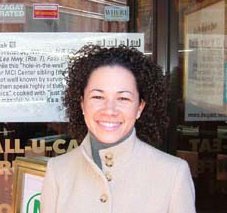
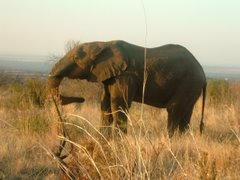

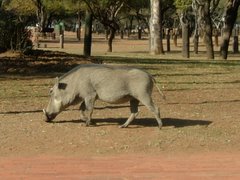
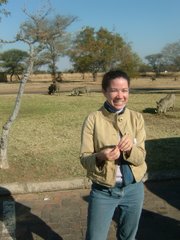
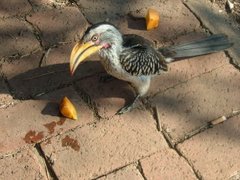

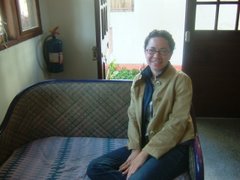
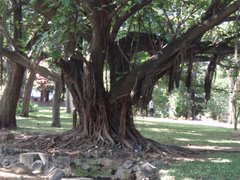
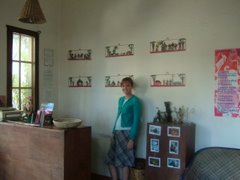
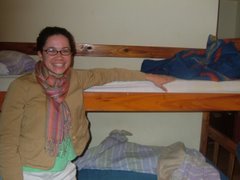
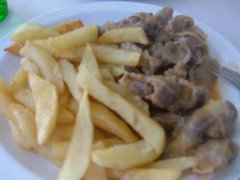
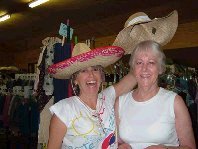

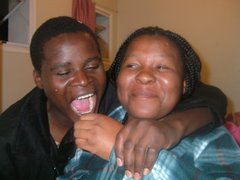


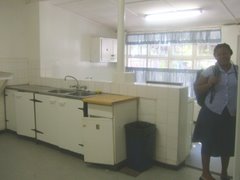
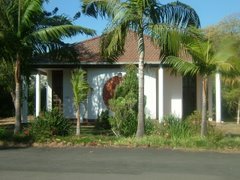
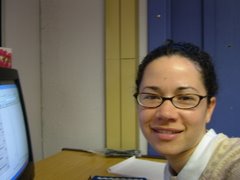
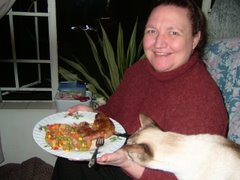
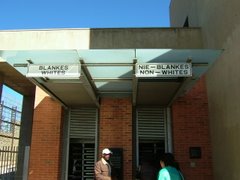
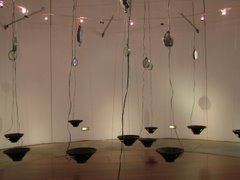
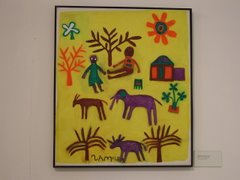
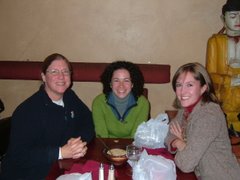
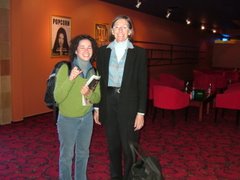

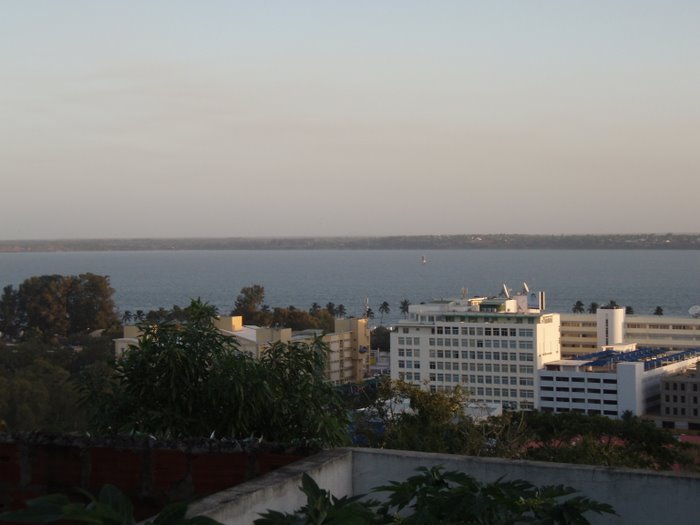
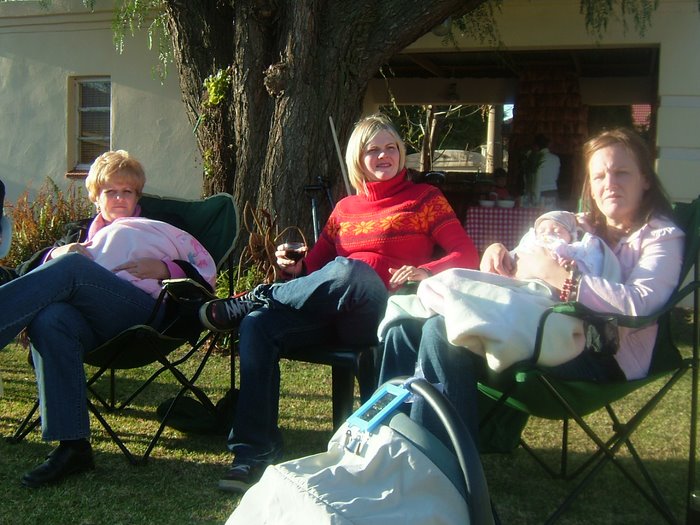
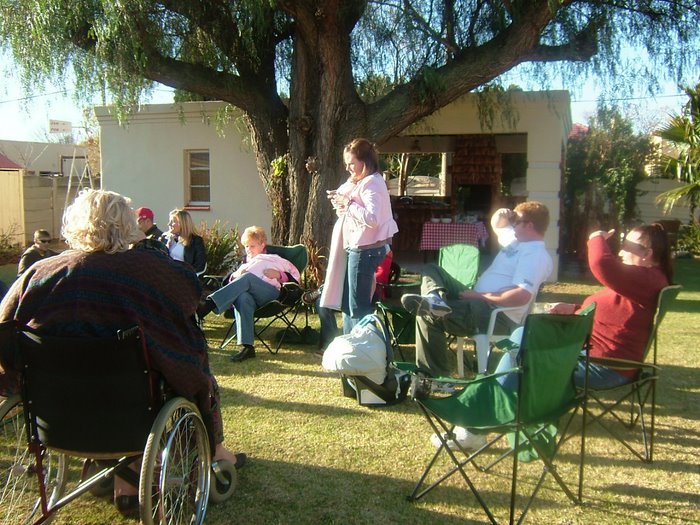
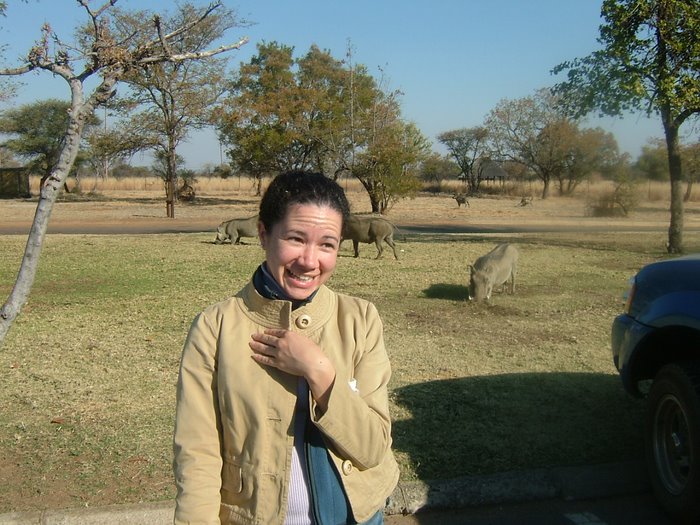
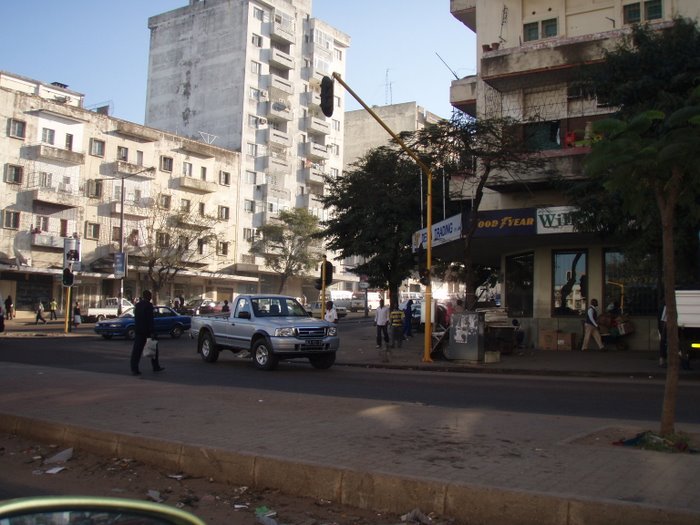
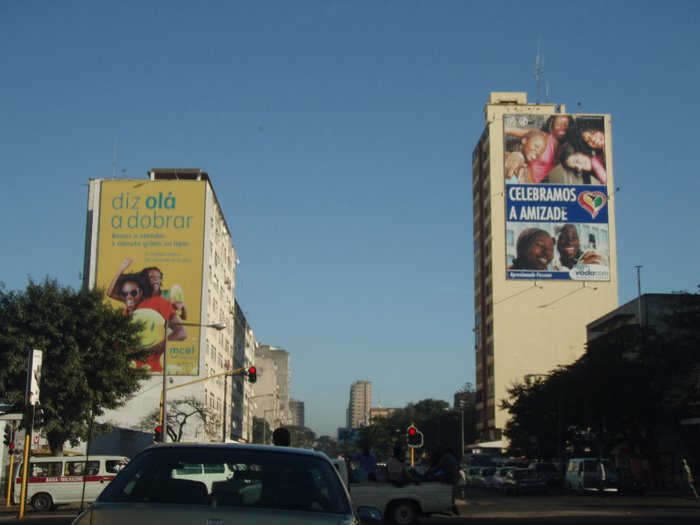
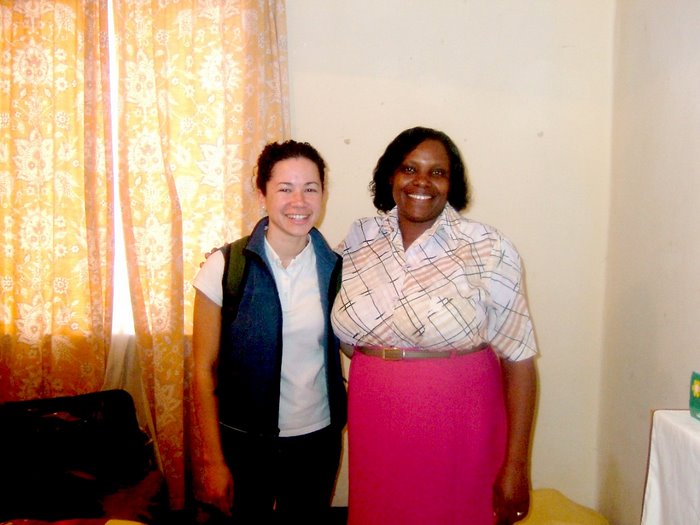
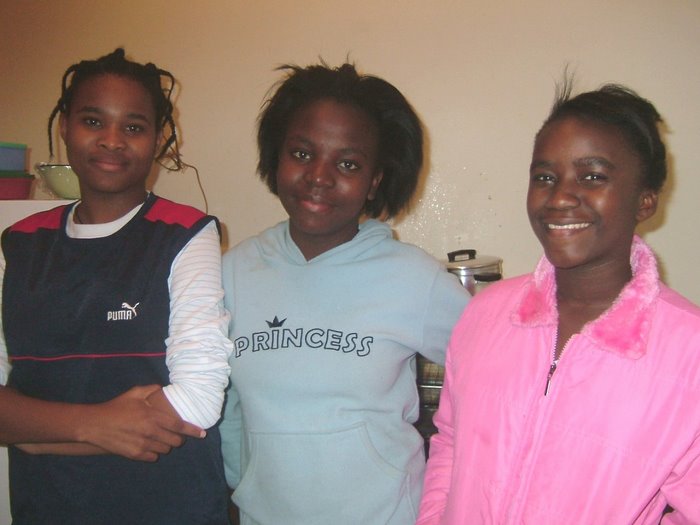
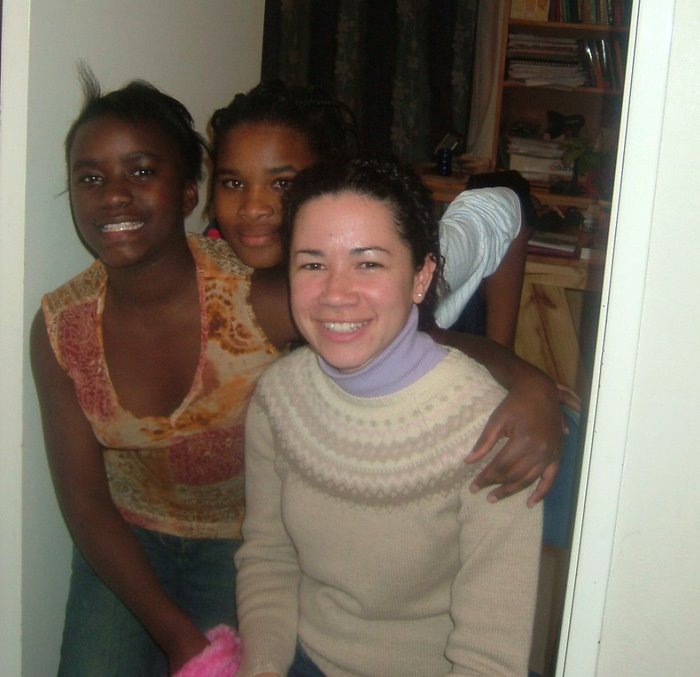
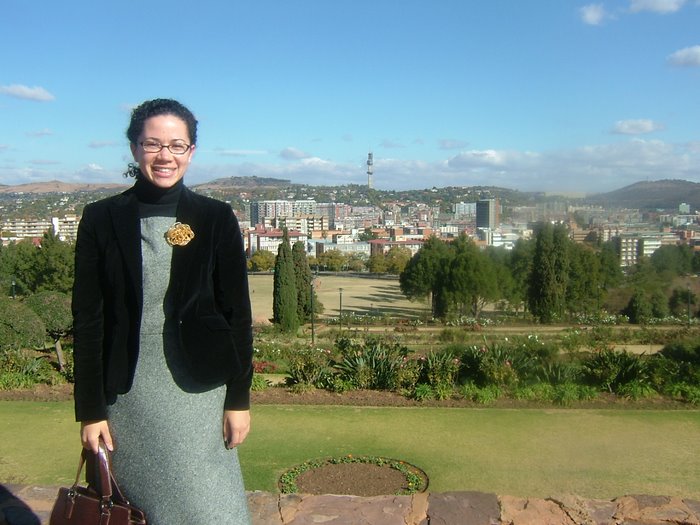
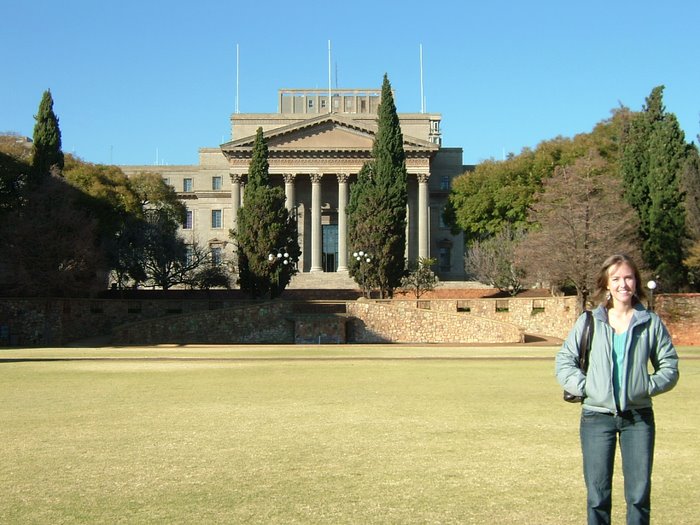
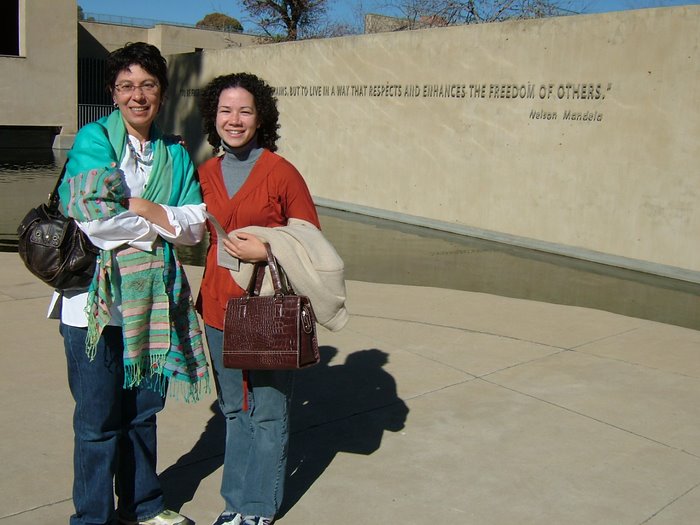
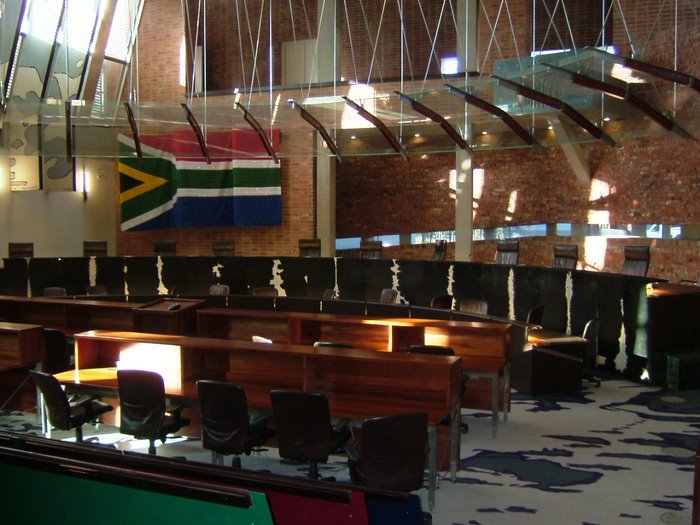
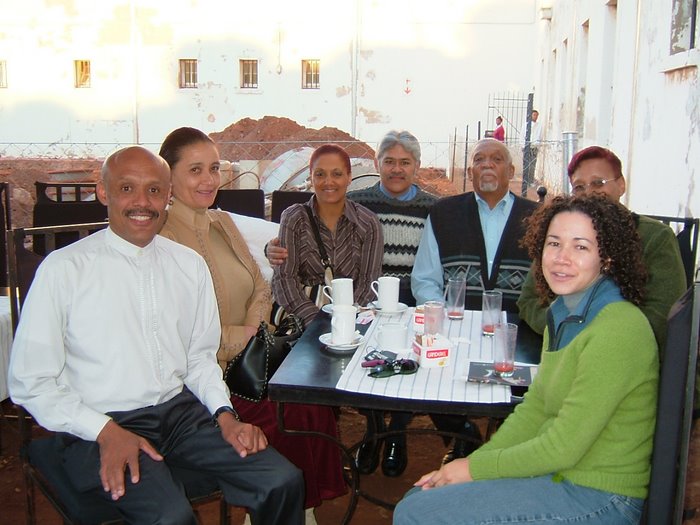
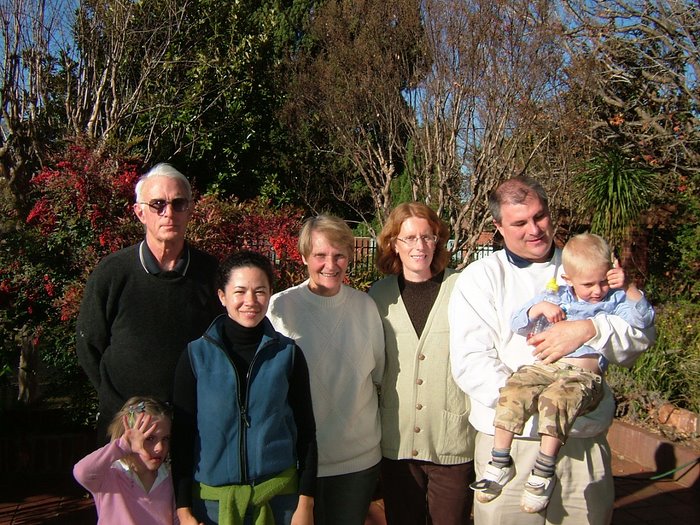
3 comments:
Kristian,
I don't know if it's that i don't have a life, or if your blog is just awesome. But i really am into this. This is better than television. I look forward to Season 2: A Fall in Tuscaloosa :)
That is really all i have to say. I feel like i am there almost, just by reading. I hope you have a very good weekend. We are going to our family reunion. Thank you for including the link to the Makonde statues. It kind of is the embodiment of the family reunion experience, so it added to my giddy/still-packing-at-2:00am'ness.
much love
Hey Kristian,
You knew how bad I wanted to go to Africa, and you and Lisa just decided to go without me, for shame. I am so happy that you were able to go back, I bet it is very different the second time around. I ran into Malissa Brown who hipped me to your blogsite. I have alot of catching up to do. As for myself, I leave for Hong Kong in two weeks (Aug 2nd) and have also create a blogsite (www.whileinhongkong.blogspot.com) so that you all can keep up with me. I am glad you made it back to Africa, I have to go to work so I will post something at another time.
Peace!
I’ve added a few more pictures to the blog from my time in Maputo. These were taken by my travel companion, Lisa. There’s one picture of a city street corner which I included because it is so typical with its Vodacom ads. Vodacom is one of the cell phone providers in SA and Mozambique, along with Cell C and MTN, but of those 3, Vodacom seems to be the largest. It is essentially the Starbucks of SA, with a shop on every corner. You can also buy airtime / cell phone minutes at nearly every gas station and grocery store. Airtime isn’t very cheap (30 Rand or $5 will last you a week with low to moderate calling) … but that’s $20 a month, which most don’t have to spare. Nevertheless, many deem it a necessity in a country that has such a high incidence of crime. Understandably so, people want to be able to keep in touch with one another often, and to feel that if they were in a emergency situation, that they would have some means of getting help. So here is another example of where necessity intersects with financial reality and breeds creativity. If someone can get a cell phone, they can then add just a few minutes of airtime, call their husband / wife to check in / hang up quickly so that it shows a missed call, which serves as an indication to the other person that you’re fine. As a courtesy, the other person will likely return a missed call. I have a friend at work who does this every morning with her family. A missed call doesn’t cost anything, so both the security and financial needs are met. I can’t tell you all the ways in which I’ve noticed such creativity and resiliency among South Africans. In the face of 25% unemployment (a figure that varies widely depending upon how unemployment is calculated) … people have created their own jobs. Car guards don bright orange vests and point out parking spaces and watch the lot until you return to deter thieves. Some professional organizations have developed so that organizations such as banks can have more confidence in the car guards they employ, but the professional organizations followed personal creativity, and not the other way around. Individuals are meeting desperation with astounding creativity and a whole industry has been created from scratch. Another example also relating to transportation is the taxi cabs, which were deregulated following apartheid such that ambitious individuals might have a way of generating revenue with just a minivan and ambition. I’ve just been so thoroughly impressed with the creativity that abound here. Oh, one more example. Mozambique has a much highest incidence of malaria, in part because of the more tropical climate but also due to poorer resources. When I visited there last week, I spoke with a man who, noting the lack of preventative methods in hospitals and homes, created his own business to meet a need, PROSERV, LDA. He now has contracts with international NGO and governmental organizations distributing mosquito nets.
The other picas are of Lisa, Naftal, and I. Naftal was the guide for both groups that went to Mozam. with BSC. We just learned that he will be leaving Mozambique at the end of August to begin his studies in Zimbabwe. He will be traveling there with his wife and 2 children. He’s aware of the state that the country is in, but I think things were se tin motion for him to come study there before it took a turn for the worse in the last few weeks. Despite his concern for his family, he’s faithful that God will provide.
Post a Comment